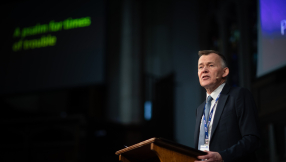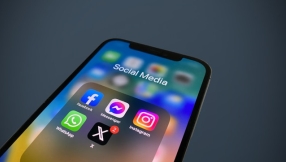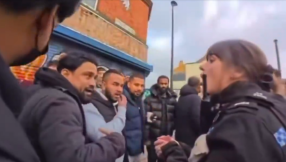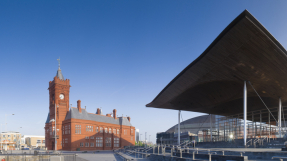Broadcaster David Frost conducted a series of television interviews with Billy Graham over his ministry. In a book to be released for the first time in paperback, Frost reviews Graham's life through his interviews with the great evangelist. This extract begins with Frost asking Graham what he would have done if he hadn't been a preacher.
Graham: I probably would have gone into politics. Politics fascinates me.
[Billy has said he has 'serious reservations about religious groups getting involved in partisan politics or saying "God is for us..."'
Lincoln said, 'I'm not so concerned as to whether God is on my side or not, but I am concerned as to whether I'm on God's side or not. '" However his concern has not prevented him from some involvement in politics.
"Weren't you considered as a candidate for president in 1964?" I asked.]
Graham: Briefly, until my father-in-law called and my wife called and said, 'If you announce that you're going to run for president,' she said, 'I'll divorce you, and America will not elect a divorced man.'
Frost: But it was there for a moment?
Graham: It was there for a moment, and telegrams were coming in from people who said that they would pledge their delegates to me, and so forth and so on. And interestingly, it was the Republicans, and I'm a Democrat!
[I also know that he has been offered several positions by presidents. Nixon offered him any job he wanted; Johnson offered him the ambassadorship to Israel. In response to that offer, he told Golda Meir, 'I am not the man. God has called me to preach.'
In fact with Johnson he was much more blunt: 'The Middle East would blow up if I went over there.'
Back in 1969, he went on to tell me how he came to have the political influence he has:]
Graham: I have happened to be friends with two or three men who became president years later after our friendship began. I knew Mr Johnson for many years, and I knew Mr Nixon for many years. I knew his father and mother back as far as 1949. And then he became senator after that and then vice president, and through the years, our friendship grew. And he told me many times, 'Billy, at all costs you stay out of politics.'
In 1960 he said, where there was some pressure on me to endorse him and I had no intention of getting into politics if I could avoid it, but he told me at that time – he said, 'Your ministry is more important than my election.' And this has been his attitude.
Frost: President Nixon, in fact, publicly gave you part of the credit for persuading him to run again [in 1968], didn't he?
Graham: Yes. I don't know whether he did or whether somebody quoted him or not. I've never really discussed it with him. But when he was trying to make up his mind as to whether or not to run, he invited me to come down to Florida and spend a few days with him, because I had been in bed with pneumonia. And he said, 'Come down and breathe some of this good air and get some sunshine and we'll have some talks.' So I went down and stayed with him, and we discussed many things and watched a football game and so forth. I gave him the reasons why I thought any prominent American in whom many people had confidence ought to offer himself at a critical period of history – not specifically him, but any American. That was more or less the way we left it. Whether that had any influence in his decision or not, I don't really know...because he's never told me.
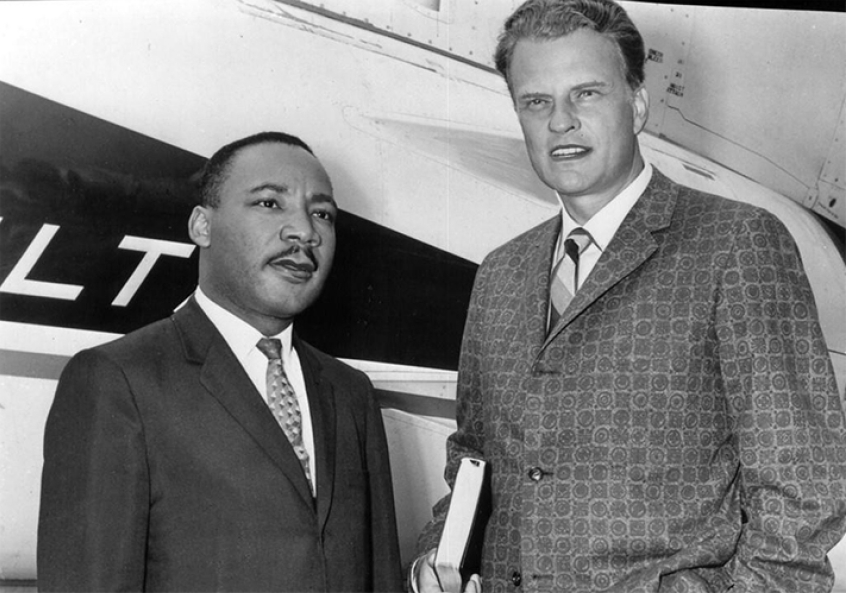
[In 1968, Billy stated publicly that he had voted for Nixon.
When asked if he had second thoughts about revealing this, he said that although he is a Democrat, he thought Nixon was the 'best qualified man', and he had been a friend of Richard Nixon's for more than 20 years.
Some have suggested that Billy's relationships, such as the one with Nixon and with other political leaders, have been too cozy. I reminded him of this.]
Frost: People say that Jesus was at odds with the political leaders of His time. He was condemning them. It was an adversary relationship and yours is not; Jesus's [relationship] would have been different.
Graham: It has been adversarial in private. A number of things I have completely disagreed, and argued a point of view that they didn't particularly accept. But I haven't done it in public, because I knew if you do it in public, you never get an opportunity to do it again. I have been asked advice by politicians from time to time, and I've given them exactly what I think I should give them, if that's my conviction. Some of them, they ask questions I don't know the answer to, and I just tell them I don't have an opinion on that.
Frost: Do politicians ask more for advice or for a blessing on their endeavors?
Graham: Advice. I don't think I've ever sensed that one wanted a blessing on what he was doing or saying.
[In a 1989 retrospective, I broached the subject of Watergate and Nixon.]
Frost: You got very close to Richard Nixon, and then the whole Watergate business was an embarrassment, wasn't it?
Graham: It was a warm friendship, and I have great admiration for Mr Nixon. How Watergate came to be, I don't know. It was an amazement to me and a shock to me and a disappointment to me, but I remember that one of the men on the investigating committee told me...that he listened to hours of those tapes, and he said that there came a time when it seemed that somebody else took over, and he wondered if I would think that might have been the Devil. I said, 'I don't know, but it might be,' because it didn't sound like Mr Nixon, and it wasn't him at all. And the words that he used...I never knew he even knew those words because I'd been with him many times and he was always the perfect gentleman and is today.
Frost: So it could have been the Devil?
Graham: It could have been. I mean, I couldn't answer that for sure, but I think he was caught in something that was beyond his ability to handle.
Billy once told me that he had forebodings about President Kennedy going to Dallas, and he shared with others his feelings that something dreadful was going to happen.
Graham: I called George Smathers, who had been in [Kennedy's] wedding and who was a close friend of mine...and I said, 'George, I don't think that the president ought to go to Texas at this time.' I said, 'The tension is pretty high down there about him and some of his policies.' He said, 'Well, I'll pass that on to him.' But I don't think that he ever did. All the presidents that I have met, I knew them before they ever became president. That's the interesting thing. And I spent more time with Johnson than any other president because he wanted a minister around him all the time.
[And the mention of Lyndon Johnson's name naturally segued us into a discussion about America's involvement in Vietnam. I knew that the situation there had torn at Graham's soul, as his biographer William Martin has said.]
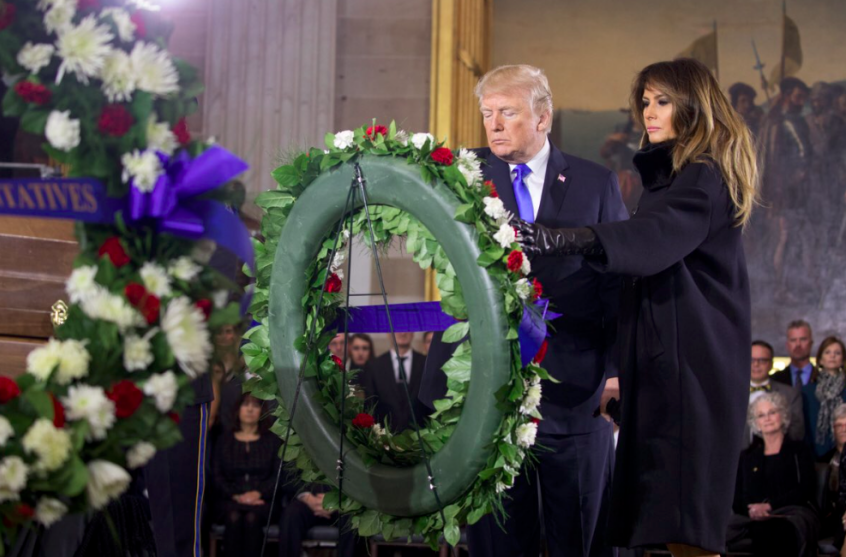
Graham: Going to Vietnam two or three times myself and seeing the impossibility of it, however we got involved in that war, I'll never know. And while our motives might have been good as Americans– I'm speaking about Americans and not Christians now – [and] they might have been good in the beginning, we got bogged down in something that anybody that would go into Vietnam or go into Asia would get bogged down in.
Frost: What's the lesson of that, of the Vietnam War?
Graham: I think one of the big lessons is that we should do more talking and less fighting. I think that the world is ready for strong leadership on disarmament.
[Chuck Colson once admitted that the prayer breakfasts and worship services Billy Graham participated in during Nixon's administration were used for political purposes. I wondered if Graham ever felt used by politicians or their aides.]
Graham: Yes. By several of them. By the aides. I never felt used by the politician himself so much, never really, because I saw them privately. And I never had been to the Oval Office in all these years more than two or three times. I always see them in their private quarters and become family friends.
Frost: Where you have felt used, how were you used?
Graham: I couldn't answer that. I...just don't believe that the president, presidential candidate, or the president himself, has ever attempted to use me.
[In a later interview, I asked Graham again about the perils of being a friend of political leaders and serving God's purposes at the same time.]
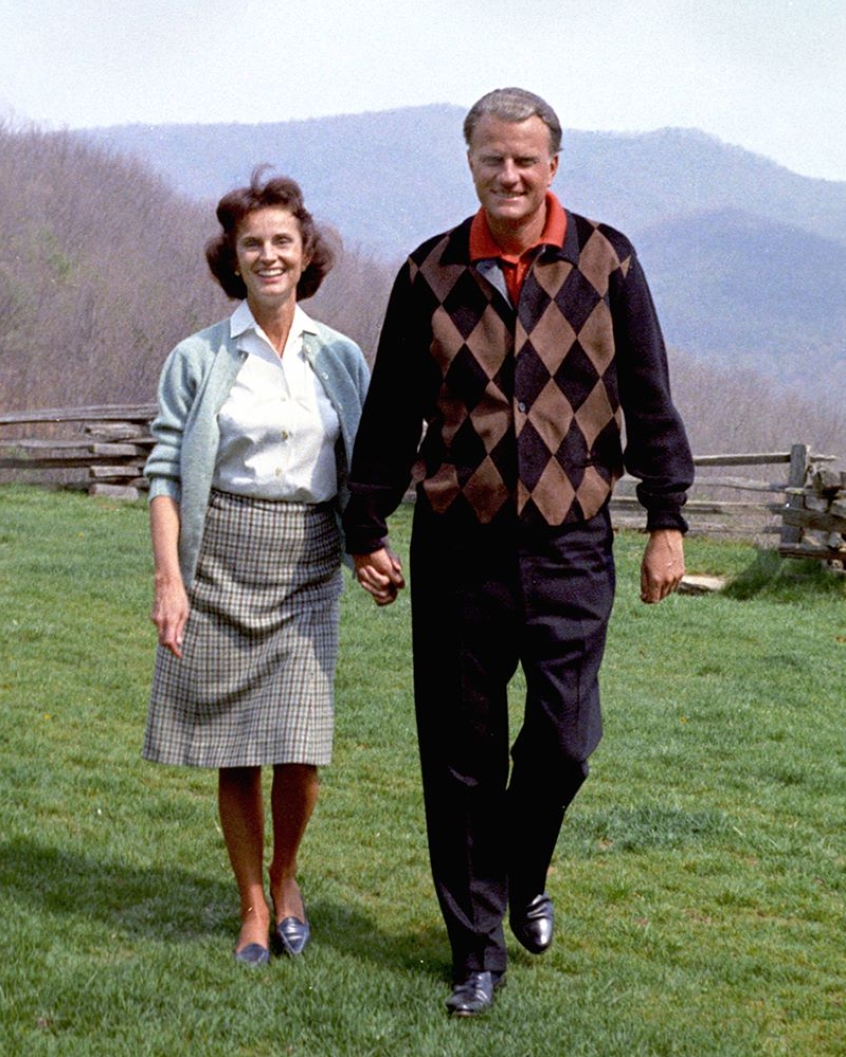
Graham: Not now as much as in the earlier years, before I knew better. Today, that's not a problem at all. It's God and God alone that I serve. I will be a friend to men of both parties, but I would never say that I was, even indicating that I was for one or the other. I am for God. I don't think there's any hope for the world except in God. I don't think any...I think the job's too big for any president, or any man, and I think the same is true in many parts of the world. They can't govern the world. This country can't be governed, I don't think, by one, many, or by a group of people. I think only God working through these men is going to be.... That's the reason it's so important for us to have prayer groups and prayer meetings and join hands together, whether we're Protestants, Catholics, or Jews, and pray, because we are praying to the same God.
Frost: Do you think there was a time when you were perhaps beguiled by being 'shoulder to shoulder' with the presidents and the powerful men of the world? Do you think that was a sort of tempting, a beguiling experience?
Graham: I'm not sure, David. I've often thought about that. Always, in the back of my mind, I said, This is a way to serve God, not only to influence them spiritually, and religiously, but to influence the people that they influence. And secondly that this is a voice that they don't hear. Very few people will tell the president about spiritual things and religious things or have prayer with him, and I felt that this was a way that God used me, and I felt I was a servant of God when I was with these people.
Frost: What do all these presidents, all these people with power have in common?... What lessons have you drawn? What ... are the responsibilities of power?
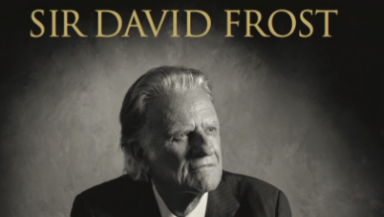
Graham: I think that many of them go after this thing because of ego. I think some go after it because they really feel that they can make a great contribution to the country that they serve. But, I think that once they get into the position, a great transformation takes place. They become either tired or humbled by it, or changed by it. They are not so cocksure that they've got all the answers.
I'm an admirer, for example, of a certain prime minister right now, and I had a time with him a few weeks ago, and he is totally different in person than he is in the press. And, he is a man that has a tremendous intellect.... He reminds me of MacArthur or Churchill. And I think that there are people like that, and they have a lot to offer.
But many people, I think, in this country, are pulling back from politics because they don't want their lives investigated to the nth degree and their families embarrassed, and all that goes with politics today. I think we are in danger of losing some of the great people that we've got in this country for the future because of the investigative reporting that's gone so far, and I think that sort of began with Watergate.
'Billy Graham: Dialogues on faith, family and more' is a series of interviews with the legendary broadcaster Sir David Frost, in which Billy Graham reflects upon his life and ministry. It was published in hardback by David C Cook in 2014 and is now being released in paperback for the first time.










